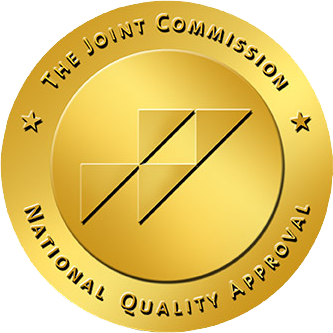If you or a loved one struggles with alcohol addiction, you know the mental, physical, and social toll it can bring. Seek positive change through expert medical treatment in a private, luxury environment. Sana at Stowe is here to help if you or a loved one drinks excessively or struggles with an alcohol use disorder (AUD). We provide alcohol rehab center in Vermont for those in need of recovery from alcoholism and addiction.
Alcohol Addiction Statistics in Vermont
Alcohol and drug use among Vermont residents in a given year is higher than the national averages:
- 25.39% of residents use drugs (about 159,000 people)
- 6.23% abuse alcohol (about 39,000)
- Nearly 21.11% of all deaths from 2008 to 2017 were caused by drugs or alcohol (12.71% was the national average for this time frame)
These statistics mean nearly one out of every three Vermont residents uses drugs or abuses alcohol. Alcohol addiction can have deadly consequences, from drunk-driving accidents and injuries to developing liver disease and increased risk of certain cancers.
When drug and alcohol use appear commonplace, you might have difficulty identifying an addiction. Understanding the signs and symptoms of alcohol addiction can help determine if you or your loved one needs alcohol rehab.
Signs and Symptoms of Alcohol Addiction
The following are common signs and symptoms of alcohol addiction:
- Unable to control the amount you drink
- Wanting to quit or cut back, but you cannot
- Intense cravings and urges to drink alcohol
- Loss of interest in preferred hobbies or social activities
- Risky behaviors while under the influence, like drunk driving or unsafe sex
- Spending significant time drinking or recovering from alcohol use
- Need to drink more alcohol to get the same effects
- Experience withdrawal symptoms like shaking, nervousness, or nausea when you aren’t drinking
- Drinking alcohol to avoid withdrawal symptoms
- Unable to fulfill duties at home, work, school, or with your family due to alcohol use
- Continuing to use alcohol despite problems at work, school, or in relationships caused by drinking
- Using alcohol to self-medicate for stress and mental health issues
- Drinking despite physical health problems caused by excessive alcohol use
If you notice these signs and symptoms of alcohol addiction in yourself or a loved one, you might need professional alcohol rehab in Vermont. Quitting alcohol on your own could be challenging and lead to relapse. In addition, without medical support services, you could have life-threatening complications due to withdrawal symptoms.
Alcohol addiction can cause long-term problems when left untreated. It is best to get treatment early before the long-term effects of alcoholism negatively impact your overall quality of life.
Long-Term Effects of Alcohol Use Disorder
The long-term effects of alcoholism include adverse consequences on your overall health and well-being. Alcohol use disorder can negatively affect your physical, mental, and social health.
Physical Health Effects
The physical health effects of long-term alcohol addiction include:
- High blood pressure
- Increased risk of stroke and certain cancers
- Liver and heart disease
- Weakened immune system
Mental Health Effects
Long-term effects on your mental health include:
- Difficulty learning new things
- Problems with memory
- Depression
- Anxiety
- Troubling coping with stress
- Worsening of existing mental illnesses
Social Health Effects
Alcoholism can have adverse effects on your social wellness like:
- Problems at work or school
- Unemployment
- Legal issues like drunk driving or public intoxication
- Difficulty maintaining healthy relationships with friends and family members
- Financial problems
How is Alcohol Addiction Treated?
Alcohol addiction is treated in stages, and your treatment plan might vary from others depending on your unique needs and preferences:
Alcohol Detox Facilities
The first part of alcohol addiction treatment is called “alcohol detox.” During detox, you rid your body and mind of the harmful chemicals from alcohol abuse.
You might experience withdrawal symptoms during alcohol detox, which can range in severity from mildly discomforting to life-threatening. Alcohol detox takes about one to two weeks.
Alcohol withdrawal symptoms might include:
- Nausea and vomiting
- Difficulty concentrating
- Trouble sleeping
- Digestive problems
- Tremors or shakes
- Irritability and agitation
- Seizures
- Hallucinations
Active Treatment for Alcohol Addiction
After detox, you might enter inpatient treatment at a residential facility or continue at an outpatient treatment program. During active treatment, you learn how to maintain sobriety, enact relapse prevention, and deal with underlying issues of alcohol addiction.
Most people begin active treatment in a residential facility, often known as rehab. These facilities offer a homelike atmosphere with amenities and various therapies for alcohol addiction. Inpatient residential treatment is best if you are new to recovery, are triggered to use alcohol in your home environment or community, or face a high risk of relapse from experiencing severe alcohol withdrawal symptoms. Our team of experts is here to help instill relapse prevention in all of our patients.
Outpatient treatment options can be helpful to continue treatment after completing a residential program. You can also use outpatient options when you are safe and supported in your recovery at home or if you reside in a sober living home.
Long-Term Recovery
After active and intensive treatment, you enter long-term recovery. During this part of alcohol addiction treatment, you continually strive to maintain sobriety and achieve your long-term recovery goals. You might continue seeing an outpatient therapist for underlying mental health issues. Many treatment facilities support alumni of their programs to keep them connected to the recovery community.
Long-term recovery also involves participating in peer support groups. Groups like Alcoholics Anonymous (AA) or SMART Recovery can help you maintain sobriety with support from others in recovery. These support groups are free of charge and can help you find sober friends to build a support system.
What Happens in Alcohol Rehab at Sana?
Sana at Stowe follows a science-backed, holistic treatment experience for those with alcohol use disorders. We follow the stages outlined above while creating a personalized treatment plan that meets every person’s unique needs. During alcohol rehab, you will begin the active stages of treatment for alcohol addiction.
Medical Detox
Alcohol rehab with Sana at Stowe begins with detox to manage withdrawal symptoms. Due to the severity of alcohol withdrawal symptoms, it is best to have experts like our team monitor you to ensure safety. Medical detox could include medication-assisted treatment (MAT) to help you manage cravings and withdrawal symptoms during early recovery.
The following are FDA-approved medications used to treat alcohol addiction:
- Acamprosate
- Disulfiram
- Naltrexone
Our medical experts will assess your situation, including the amount of alcohol used and the duration of your alcohol use disorder. These factors may influence the type of medications used and the length of the detox process. During this stage of treatment, we monitor you for the first 3-10 days, offering 24/7 access to medical personnel. Our caring environment and qualified team provide a safe alcohol withdrawal process.
After Detox
After detox, you can transition into an alcohol addiction rehab program in our residential treatment center. During your stay at our Vermont treatment center, you will begin to understand the underlying causes of your addiction while learning how to maintain long-term sobriety. You will follow a daily schedule that could include concierge-style services customized to your unique needs and preferences.
Our alcohol rehab facility includes:
- Emphasis on health and wellness
- Healthy eating
- Exercise
- Recreation
- Holistic health activities
- Evidence-based therapies for underlying mental health issues
- Cognitive behavioral therapy (CBT)
- Dialectical behavioral therapy (DBT)
- Acceptance and commitment therapy (ACT)
- Peer support services
- Group therapy sessions
- 12-step facilitation
- Medical and psychiatric care
- Family involvement
- Planning for aftercare
Rehabilitation takes place at a private, picturesque facility in the Green Mountains. The facility location provides an intimate environment where those with substance use disorders can seek healing. The building includes various indoor and outdoor activities, and a full range of services to help you focus on healing. We provide nutritional cuisine, fitness, and other holistic health activities like gardening.
Our mix of therapies and healthy lifestyle support provides the basis for long-term alcohol rehab. We provide alternate activities and techniques for managing alcohol use disorders and co-occurring mental illness, supporting a new, healthy lifestyle.
Alcohol Rehab in Vermont
Alcohol addiction can negatively impact your life and the lives of your loved ones. If you or a loved one struggles with alcohol addiction, Sana at Stowe in the Green Mountains of Vermont is here to help. Our concierge-style services can accommodate your needs during alcohol rehab to begin your journey of lifelong recovery. Keep reading below to view our health insurance policy and payment options Call us today with any questions about treatment or visit our admissions page to get started.

Sana at Stowe has achieved accreditation and received
a Gold Seal of Approval® from The Joint Commission®.
This accreditation award verifies that Sana meets the most rigorous quality and patient safety standards of care, and shows a dedication to excellence across the full continuum of care. Learn more.

In-network with many insurance companies!
Sana at Stowe is in-network with BlueCross BlueShield, United Healthcare, UBH, UMR, MVP, First Health, Tufts Health Plan, Harvard Pilgrim Health Care, and Tricare and also accepts most out-of-network insurances, and accepts all private insurance. We also provide access to financial assistance to help with the cost of treatment.


